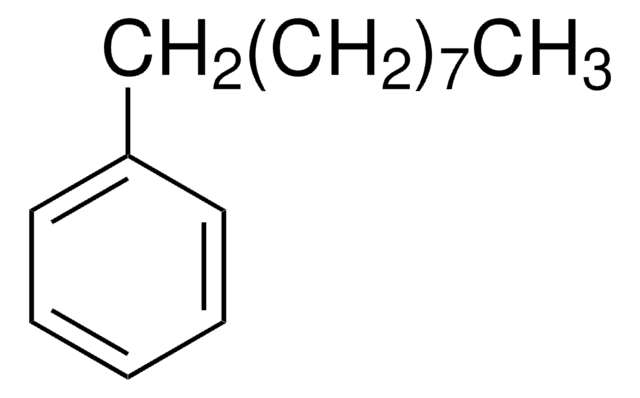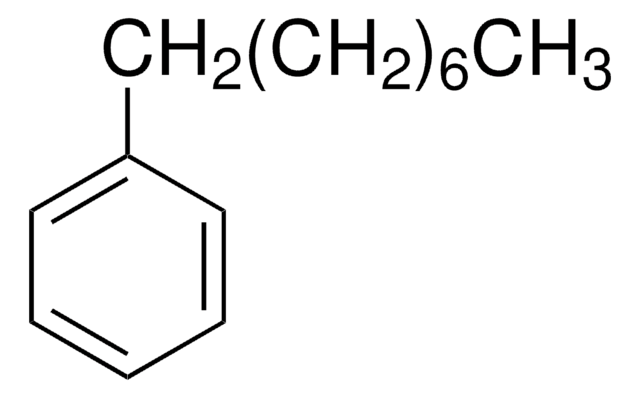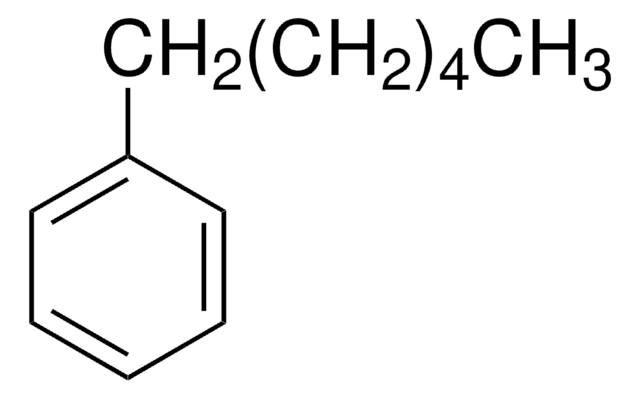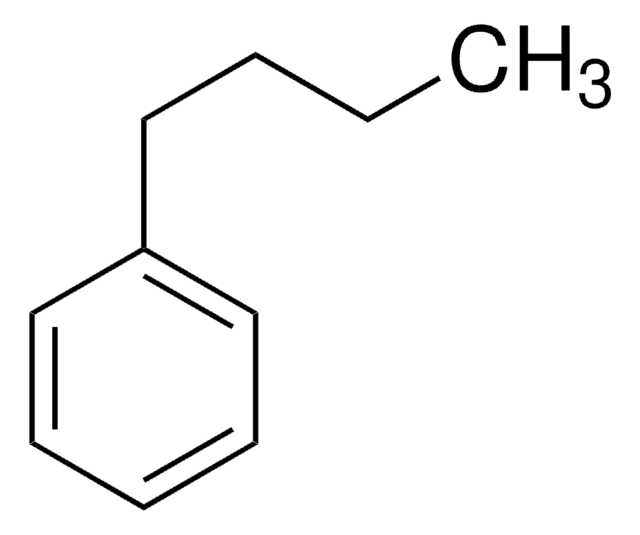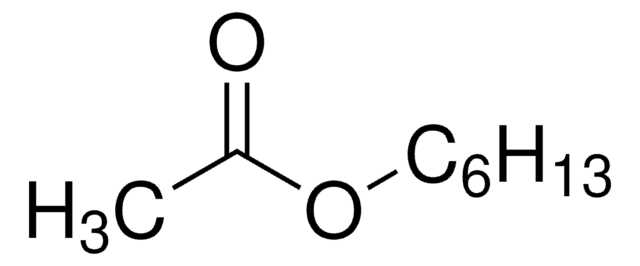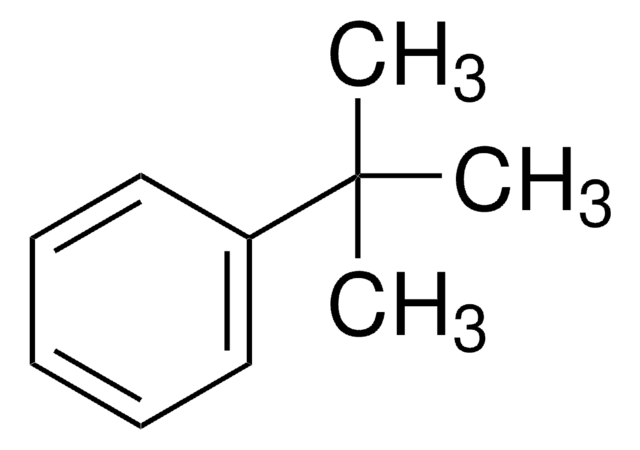All Photos(2)
About This Item
Linear Formula:
C6H5(CH2)6CH3
CAS Number:
Molecular Weight:
176.30
Beilstein:
1905782
EC Number:
MDL number:
UNSPSC Code:
12352100
PubChem Substance ID:
NACRES:
NA.22
Recommended Products
Quality Level
Assay
98%
refractive index
n20/D 1.485 (lit.)
bp
233 °C (lit.)
mp
−48 °C (lit.)
density
0.86 g/mL at 25 °C (lit.)
functional group
phenyl
SMILES string
CCCCCCCc1ccccc1
InChI
1S/C13H20/c1-2-3-4-5-7-10-13-11-8-6-9-12-13/h6,8-9,11-12H,2-5,7,10H2,1H3
InChI key
LBNXAWYDQUGHGX-UHFFFAOYSA-N
Looking for similar products? Visit Product Comparison Guide
General description
Heptylbenzene (1-Phenylheptane) forms charge-transfer complexes with fluoranil and 1,3,5-trinitrobenzene.
Application
1-Phenylheptane is used in zirconia and titania based stationary phase capillary HTLC, to separate alkyl benzene derivatives using an acetonitrile-water eluent.
Signal Word
Warning
Hazard Statements
Precautionary Statements
Hazard Classifications
Aquatic Acute 1 - Aquatic Chronic 1
Storage Class Code
10 - Combustible liquids
WGK
WGK 3
Flash Point(F)
203.0 °F - closed cup
Flash Point(C)
95 °C - closed cup
Personal Protective Equipment
dust mask type N95 (US), Eyeshields, Gloves
Choose from one of the most recent versions:
Already Own This Product?
Find documentation for the products that you have recently purchased in the Document Library.
Hot eluent capillary liquid chromatography using zirconia and titania based stationary phases.
Kephart TS, et al.
Analytica Chimica Acta, 414(1-2), 71-78 (2000)
Giorgia Purcaro et al.
Analytica chimica acta, 1027, 158-167 (2018-06-06)
Untargeted metabolomics study of volatile organic compounds produced by different cell cultures is a field that has gained increasing attention over the years. Solid-phase microextraction has been the sampling technique of choice for most of the applications mainly due to
Our team of scientists has experience in all areas of research including Life Science, Material Science, Chemical Synthesis, Chromatography, Analytical and many others.
Contact Technical Service